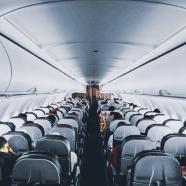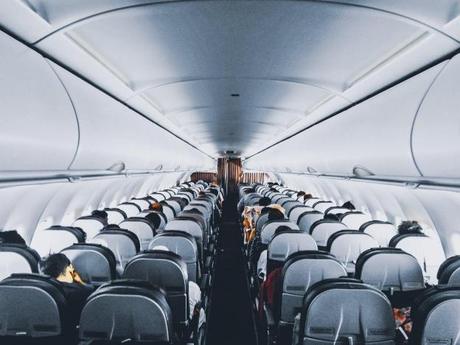
Tags

When it comes to careers, the world is your oyster. But why not opt for a career that ticks all of your professional boxes and lets you see the world too? Careers in aviation can prove extremely appealing for a whole host of reasons. They're a whole lot different to the average nine to five stuck behind a screen in an office - you can say that much at least! Now, there are plenty of different roles in the world of aviation, so let's take a moment to look at three largely different roles that might appeal to you!
Flight AttendantOne of the most commonly engaged with roles within the aviation industry is becoming a flight attendant. Flight attendants are essentially stewarding staff who work on an aircraft. They are also referred to as "cabin crew" or "in-flight attendants". Most flight attendants will work for commercial airlines on commercial flights.
ResponsibilitiesIf you're considering becoming a flight attendant, it's first important to get to know whether the role is right for you or not. So, let's start out by taking some responsibilities into account:
- Ensure the safety and comfort of passengers on each flight
- Inspecting aircraft before take off
- Ensuring that all safety equipment is in place
- Assisting with the boarding process
- Briefing passengers on safety standards
- Securing the cabin before take off
- Delivering snacks, headphones, pillows and other items to passengers
- Distributing in-flight meals
- Selling duty free or in-flight products
- Removing trash from the cabin
Next, let's take a look at the salary that is usually attached to this type of position. Generally speaking, the base salary of a flight attendant comes in between $59,000 and $91,000. However, the average salary is around $74,000. The amount of money that you earn is likely to be significantly affected by the airline you happen to work for.
PilotIf you're looking for an extremely well-paying job, you might want to consider becoming a pilot. Like flight attendants, the majority of pilots will work for large commercial airlines. However, there are plenty of private jet pilots out there too!
Responsibilities- Ensuring that all safety systems are working
- Briefing cabin crew before the flight
- Flying a plane from one location to another
- Making announcements to passengers
- Making sure that all necessary information is reported en route (this could include the route itself, passengers, and weather)
- Communicating with air traffic control
Now, let's take a look at one of the main allures of this role - the salary. While salaries vary according to the type of aircraft being operated and the amount of time you've been at an airline, the median annual salary for a pilot is just over $121,000 per annum.
TrainingIn order to become a pilot, you will need a good understanding of both mathematics and physics. While a degree or other form of academic degree is not required, it can help you to stand out amongst other applicants. In order to work for a commercial airline, you will need to acquire an Airline Transport Pilot Licence (otherwise referred to as an "ATPL"). You can gain one of these through one of two routes - an integrated course or modular training. An integrated course is an extensive, full-time course that will take you about eighteen months to complete. It combines theoretical work in the classroom and practical work through experience in flying. However, the costs of this type of course tend to be extremely high. Modular training covers the same subjects and exams as you will experience in the integrated course, but it can be carried out over a longer period of time. There are distance learning options for those who cannot commit to a full time course in a classroom.
Leasing PlanesAircraft are, clearly, extremely expensive. So there are often situations where companies that own multiple crafts will lease planes out to others. This helps others to make money and also means that they can make some money out of aircraft that they are not currently operated. It's a win-win situation. This is a career in aircraft where you can operate from the ground. You don't necessarily have to get up in the air to get involved! Now, we can't necessarily go through salaries and job responsibilities for this role, as it is so niche and specific to the aircrafts you will be leasing and hiring that there aren't really any averages. But what we can tell you is that you will have to get involved with various authorities in your home country and foreign countries in order to get arrangements to go through. You will also have to ensure that any aircraft you are leasing are in extremely good condition. You will need to carry out regular borescope inspection, alongside other forms of inspection to be completely sure that the planes you are leasing out are up to standard!
Air ControlAnother role within the aviation industry that allows you to stay on the ground is aircraft control. Within this job, you will help to guide aircraft through all aspects of their flight. You will need astounding levels of concentration to thrive in this position!
Responsibilities- Maintaining radio and radar contact with aircraft
- Directing the movement of air craft
- Instrucing aircraft to climb or descend
This is another well paying position. The average air traffic control worker will bring in around $122,000 per year. Air traffic controllers in particularly good positions have been known to earn around $172,00 per annum.
As you can see, there are hugely different roles within aviation that you might want to pursue if you are looking to follow an alternative career path! So, take the above options into consideration and figure out whether you would be suitable for each position!

